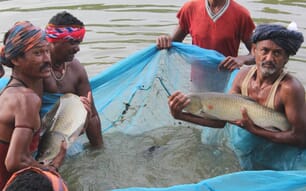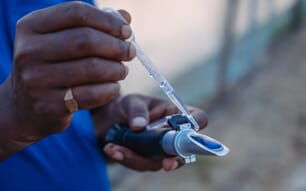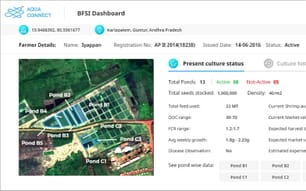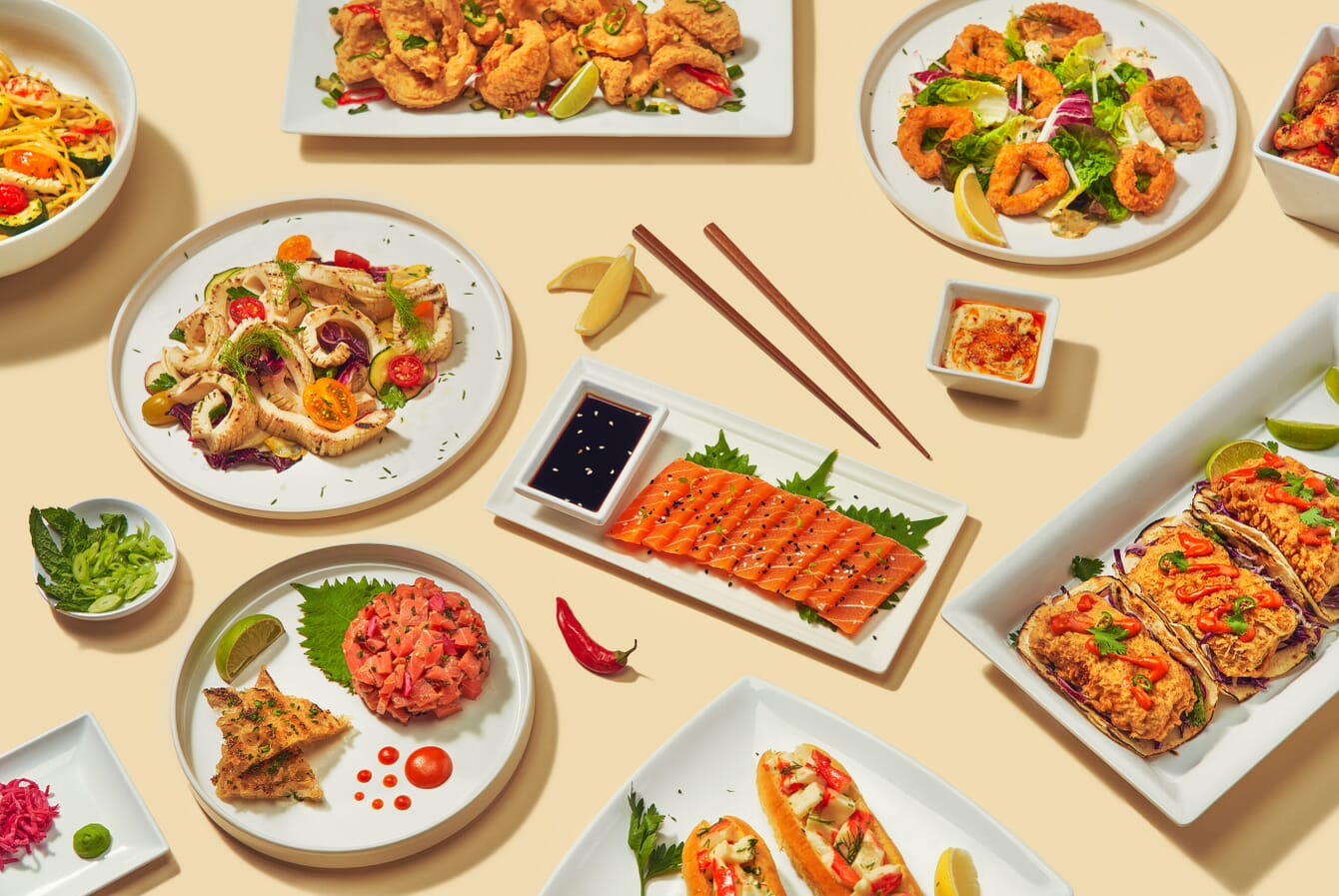
Advocates of alternative proteins often forget the economic and cultural significance of farmed seafood. © Boldly
As an entrepreneur in the seafood industry, I've often heard alt-protein advocates highlighting the negative impacts of aquaculture and arguing for the adoption of vegan alternatives and lab-grown seafood as the panacea for creating a more sustainable future. However, those viewpoints oversimplify a multifaceted issue and disregard the cultural and economic significance that farmed seafood holds in our daily lives.
It's our collective responsibility to delve deeper into the complexities of seafood consumption and take a nuanced, informed approach to address the ethical concerns. We must critically examine the discourse surrounding aquaculture, and objectively evaluate the proposed solutions for plant-based and cultured meats. Only then can we make informed and impactful decisions that truly address the challenges of sustainable seafood production and consumption.
Bridging the gap: embracing inclusive solutions
Critics often claim that aquaculture is unethical, causing environmental and social issues, and advocate for plant-based and cellular alternatives. But the truth is, these criticisms are often exaggerated and not reflective of the entire industry. When an industry grows to a global scale, it takes time to understand the impact, analyse it, and strategise countermeasures to make it more efficient and sustainable. However, the same applies to alternative proteins too – as they are still at an early stage and their true impacts are not yet fully quantified and analysed.
Is the aquaculture industry perfect? Of course not, but it is headed in the right direction. Domestic and global agencies and startups are playing a vital role in making the industry more sustainable and efficient – from production to post-harvest. By driving digitisation and transparency, they are addressing challenges and moving the industry towards a better future.
Dine with diversity: offer food options for everyone
Today, it is essential to give people the freedom to choose what they want to eat. Food choices are personal and complex, and it's crucial to acknowledge that individuals have different tastes, cultural backgrounds and nutritional needs. Some may choose to be vegan for environmental reasons, while others may prefer to consume seafood for personal or cultural reasons. The key is to make informed and mindful food choices that consider factors such as environmental impact, animal welfare, and personal health and nutrition.
I'm not against plant-based or cell-based alternatives that aim to replace traditional meat. I believe that these options are improving the choices for consumers with different preferences and food habits. The food industry is vast, and a variety of options can co-exist to cater for different consumer needs. I advocate a balanced approach that respects consumer preferences and enhances their options.
Protein for planet: affordability is the enabler
Ensuring adequate nutrition is a global challenge, and access to affordable protein is essential for people from different economic backgrounds. In India, for example, carps and tilapia can be purchased for as little as $1.50 per kilogram. Despite this affordability, many people still consume fish only once or twice a week. The cost of producing alternative meat, such as cultured meat, is currently in the thousands of dollars per kilogram, and efforts are being made to bring it down to the hundreds. But will it ever be affordable for poorer people in near future?
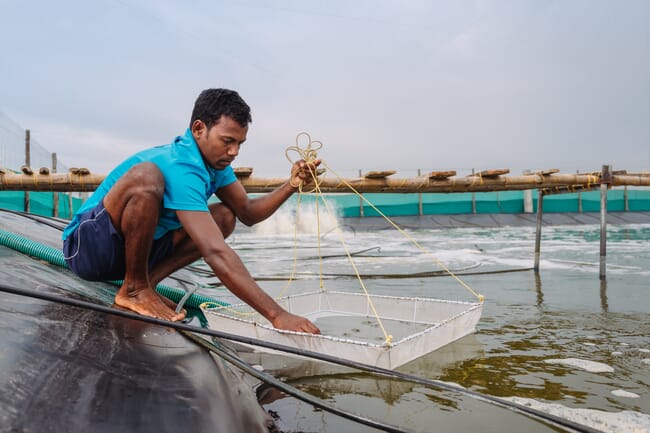
The cost of producing cultured meat is currently in the thousands of dollars per kilogram while carps and tilapia can be purchased for as little as $1.50 per kilogram. © Aquaconnect
Also, the developments we are envisioning in seafood will only happen when the consumers are ready to cover the cost. For example: traceable seafood comes with its own set of challenges, including the cost of implementing changes in the value chain. The fishing industry in producing countries is already working under stringent constraints to provide quality seafood, but persuading consumers to pay a few extra cents for traceable options is a big ask. The question is, are consumer markets ready and willing to pay the premium for a more sustainable and traceable seafood option?
Validation before propagation
In recent decades, the growth of aquaculture has brought about a greater awareness of the environmental challenges and impacts associated with it. To optimise resource usage, improve efficiency and increase productivity, there is a growing need for further research and technology adoption in the industry. In response, public and private research organisations and startups worldwide are offering increasing support to these continuous improvement efforts in aquaculture.
While there is excitement around alternative meat, we don't yet know the full extent of the effects of these products on the environment and on sustainability. As many alt-protein products are currently highly processed, it is crucial to quantify their upstream impacts (traceability of raw materials and emissions), while their downstream impacts (resources used in processing) are yet to be studied for their long-term impacts and to find ways to minimise their negative effects.

The alt seafood industry must account for factors like raw material traceability and emissions, and explore its downstream impacts in terms of resources used and processing. © Plant-Based Seafood Co
Clear-old vs unclear-new: a balancing act
Seafood currently fulfils around 20 percent of the global protein demand and creates a livelihood for millions of farmers in rural and coastal communities. Livestock farming also contributes significantly. Put together, animal protein is one of the key pillars of global food security, providing essential nutrients to billions of people every day.
Before promoting alternative protein, examining its consequences on our health is crucial before encouraging its mass consumption. Neglecting to do so may have negative impacts on the global food system and lead to potentially disastrous consequences. Although research has shown that lab-grown meat nutritionally resembles traditional meat, the long-term health effects of consuming alternative proteins are still unclear. While increasing the contribution of alternative protein may be a positive step, it is important to approach it objectively and thoroughly understand its impact on our health before making it readily available to the masses.
The world's reliance on seafood for protein and the livelihoods of millions of coastal communities who depend on it presents a delicate balance. Aquaculture, for example, not only provides jobs and economic opportunities for those in these communities but can also help ease the pressure on wild fish populations.
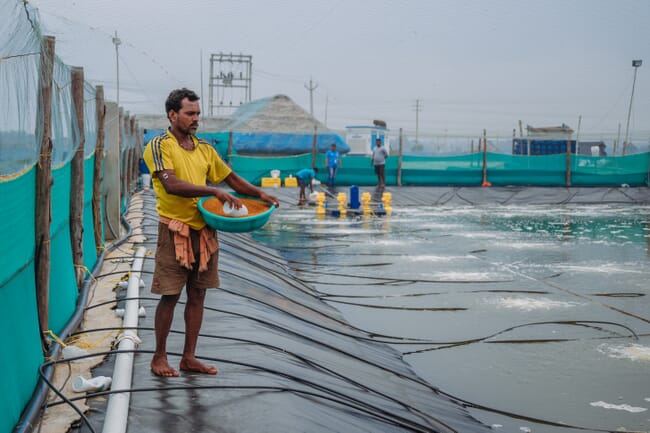
Farmed seafood and alt-protein actors should work towards creating a future that is sustainable, equitable and responsible. © Aquaconnect
However, the environmental concerns surrounding aquaculture cannot be ignored. This requires a collaborative effort between various stakeholders, where open, honest and sustained dialogue is key to finding a solution. The way forward lies in striking a balance between not just only farmed seafood, but also other animal farming and alternative meat sources.
This requires careful consideration of the sustainability and responsibility of seafood production, as well as the health impacts of alternative protein sources. I believe that farmed seafood and alt-protein actors should work towards creating a future that is not just sustainable, but also equitable and responsible, where our food choices not only nourish our bodies but also respect the planet and its people.

